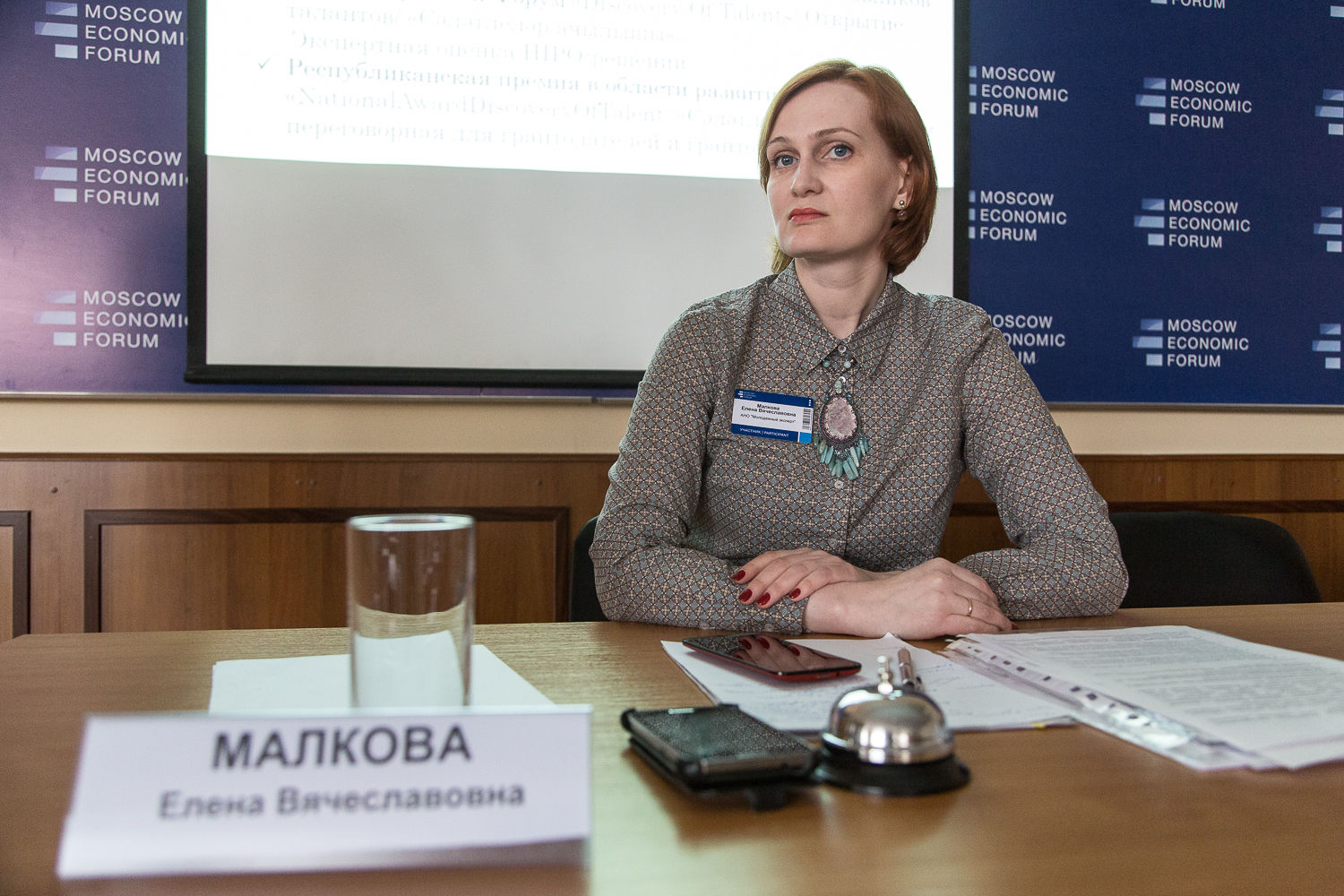MEF-2016: Round table №7 Demanded youth as the country's economic prosperity factor

Published: March 24th, 2016
March 24, 2016, 10:30Lomonosov housing MSU
On the theme:
The round table is devoted to discussion of the participation of the Russian youth in the creation of social and economic welfare of the country, "challenges" facing Russian youth (life and professional script), society (non-obviousness of youth as a social leader) and the state (youth policy, social policy, politics education, patriotic education of citizens, employment). Demanded youth: myth or reality? Youth as carrier the country's concentrated future: what are the requirements for young people future makes?
Moderator:
Elena Malkova, head of the expert group on states youth policy of the Public Council under the Ministry of Culture of the Perm region
Among participants:
A. Andreev, S. Gill, V. Gritsenko, O. Divnenko, V. Zhurko, J. Zubok, N. Kalmykov, R. Malikova, N. Nazarova, T. Petrova, S. Tetersky, V. Tretyak, A. Khokonov, T. Baranova, V. Marchenko, E. Chernenko, N. Anotonova, S. Klimova, O. Popova, A. Ponarin
March 24 in the framework of the Moscow Economic Forum a roundtable "Demanded youth as the country's economic prosperity factor" was held. Its moderator was the candidate of philosophical sciences, associate professor of philosophy and director of education programs on the subject "Organization of work with youth" of the Perm University Elena Malkova.
According to her, the young people today is not an obvious social force to the public, and for the government, not the subject and does not take active part in the system of tasks to achieve economic well-being of the country.
The roundtable participants discussed the problems of employment and self-employment, education, vocational guidance, the integration of young people as skilled labor in the production of public goods, migratory processes, patriotic education, social adaptation, self-fulfillment and more.
Head of the Presidential Expert and analytical control of RANHiGS Nikolai Kalmykov lamented the lack of career guidance system in Russia. The situation of youth employment, according to the data given to them, is close to critical: more than half of young people detained in the first place of work for no longer than six months. The reason for that is the dissonance between the expectations of employers and young people. Interaction between schools and businesses is practically non-existent. The absence of a unified information system for youth employment would contribute to solving this problem.
A different view was expressed by the doctor of pedagogical sciences, Professor Sergey Gill. According to him, professional orientation is just one of the tools for the realization for young people, while the root of the problem is all of the existing system of education. The speaker noted that since 2006 the Russian regions are united on the basis of expert advice to address the issues of education and the Ministry of Education acts as moderator. This system is extremely clumsy as the regional needs and situation are different. Sergei Gill believes that the future is in the model solutions that can be put into practice in a particular area. The system of measures he proposed includes an early differentiation of pupils, the dual system of education in the context of cooperation between business and educational institutions, participation in the global competition - a global recruitment and global education projects.
Youth participation in political life was the subject of presentations of the doctor of pedagogical sciences Head of the Department of organization of work with youth of RSSU Sergei Teterskiy. He drew attention to the debate on the growing indifference of young people to the political process. For young people the positive influence of politics on public life is not obvious, while political activity, participation in elections, and the initiative should not be seen as an obligation but as an opportunity to be part of the political progress of society.
PhD Viktoriya Gritsenko presented interesting results of studies on the use of information technology in the workplace. "In Russia, information resources, mainly needed by only science and education, research and development only. As Hegel would have said, there is a science in and of itself. While the US manufacturing activity is a leader in requirements for information resources for talented young people, which these resources can work, "- she said. According to Gritsenko, one of the reasons for the unattractiveness of industrial specialties representatives of active youth and lack of political initiative as a policy born in the field, as a means of defending their own interests - in the workplace, in the trade unions, and so on.
Sociologist Julia Zubok convinced that the root of the problem of demand for youth lies at the crossroads of the mutual expectations. Society's expectations in relation to young people is extremely blurred and indistinct. According to Zubok, there is a conflict between conservatism and the existence of examples of successful biographies and patterns of behavior on the one hand and liberalism. At the same time, there is nihilism in relation to power structures and political situation in the fight against which existing state youth policy institutions are powerless.
Panelists discussion is not only identified the main problems of youth integration into the political and economic life of the country. Along with the recognition of the decline in the country's education system, the speakers discussed the possibility of action at the federal and regional levels and considered positive examples of such initiatives.
Source: PR-departement of MEF
Share:
Latest news
07.05.2018 MEF-2018: debate "Cultural policy: between individual freedom and the interests of society?"
07.05.2018 MEF-2018: Conference No. 8
07.05.2018 MEF-2018: Conference No. 4
07.05.2018 MEF-2018: Conference No.3
07.05.2018 MEF-2018: Conference No. 2
07.05.2018 MEF-2018: Conference No.1
26.04.2018 McConnell Discusses Information Warfare
20.04.2018 MEF-2018: closing plenary session
17.04.2018 Mr. Freysinger: «Skripal’s case» for relationship between Russia und European Union?
